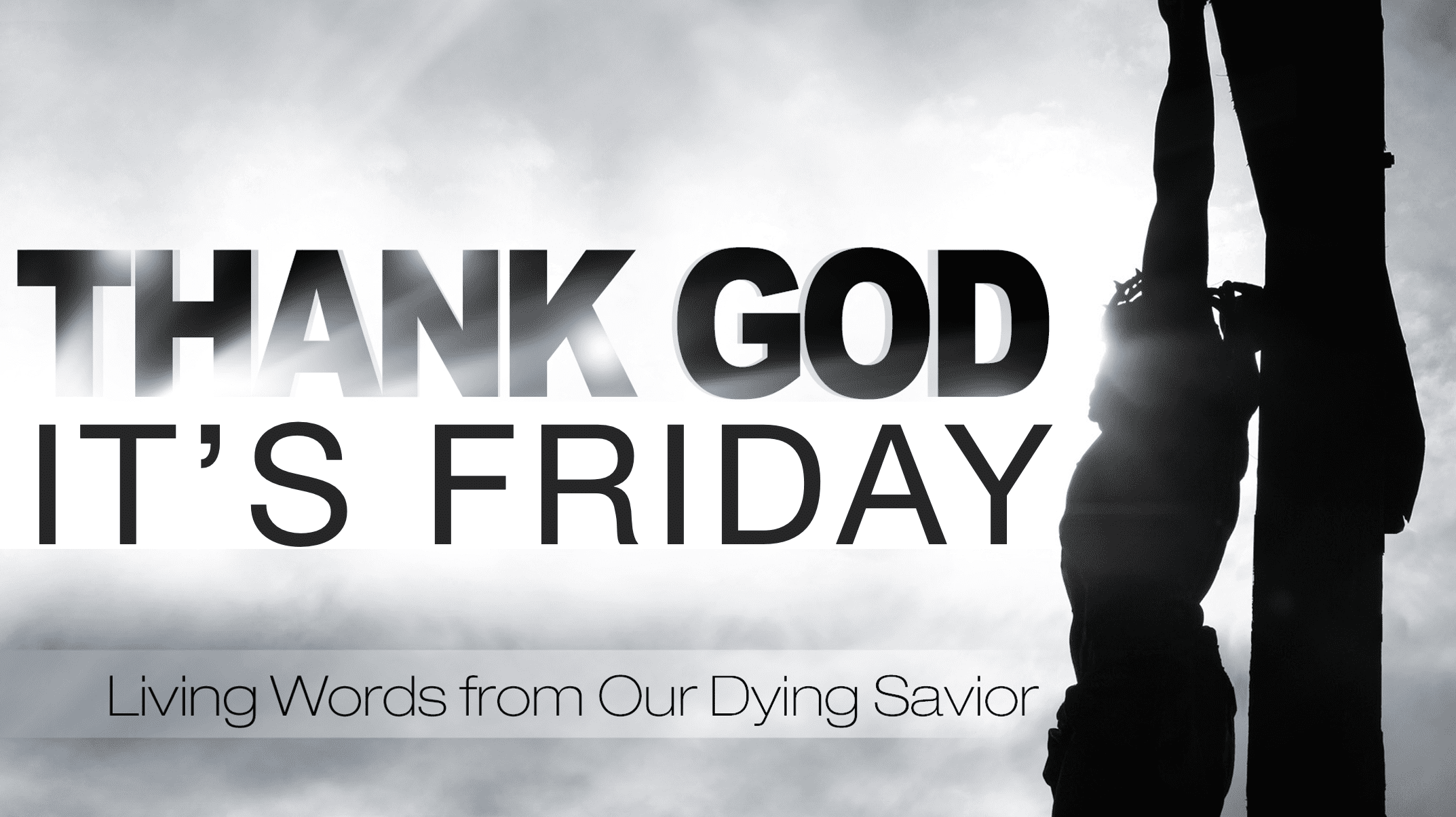
Thank God It’s Friday, Part 1: The Word of Forgiveness (Luke 23:32-37)
Jesus’s first statement from the cross is, “Father, forgive them, for they know not what they do” (Luke 23:34, KJV). One can hardly think of a more unlikely thing for Jesus to say, given the circumstances in which he says it. Crucifixion was designed to be maximally painful. As the ancients said, to be crucified was to “die a thousand deaths.” As such, this gracious prayer is spoken from inside the vortex of a living hell on earth. Jesus does not defend his innocence or curse his enemies; rather, he prays for those who are torturing him. Indeed, he is practicing what he preached about forgiveness, which is noteworthy because he has the power to stop the entire ordeal. But the removal of our sin is more important to Jesus than the removal of his own suffering, so he endures the pain.
Mercifully, a great exchange is taking place here at Calvary (1 Peter 3:18; 2 Corinthians 5:21). “Bearing shame and scoffing rude / In my place condemned he stood.” God didn’t sweep our sins under the rug; he swept them onto Christ. Jesus takes our place and dies our death. What Jesus is really praying here is, “Father, forgive them, and condemn me. Charge their wrongdoing to my account, and I will pay the cost.” In the cross of Christ, then, we see what God has done about what we have done. For God to take our part, he had to take our place. And he does so in Christ.
Moreover, though immersed in agony, Jesus died believing in the goodness of God despite the wickedness of man—as revealed by the fact that his first word from the cross is, “Father.” His steadfast faith is the kind of faith we need to extend forgiveness to others, too, which is always difficult. We tend to attribute other people’s faults to their character, and our own faults to our environment. The cross challenges that perspective, for as Jesus himself taught us to pray, “Forgive us our debts as we forgive our debtors.” When we don’t forgive others, we tear down the very bridge we need to walk on to connect with God. Forgiving those who’ve wronged us is actually the key to not being victimized or controlled by them any longer.
In the end, if the murder of the Son of God is forgivable, then your sin—whatever it may be—is forgivable, too. So, accept your acceptance from God, and then forgive others as Christ forgave you—gracefully and extravagantly.
